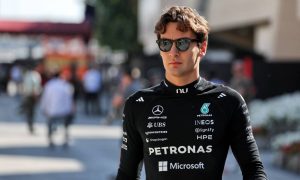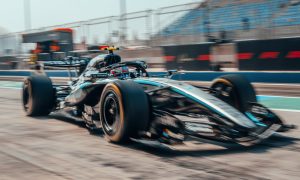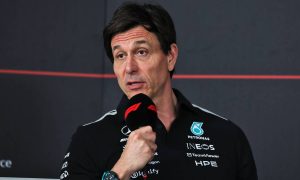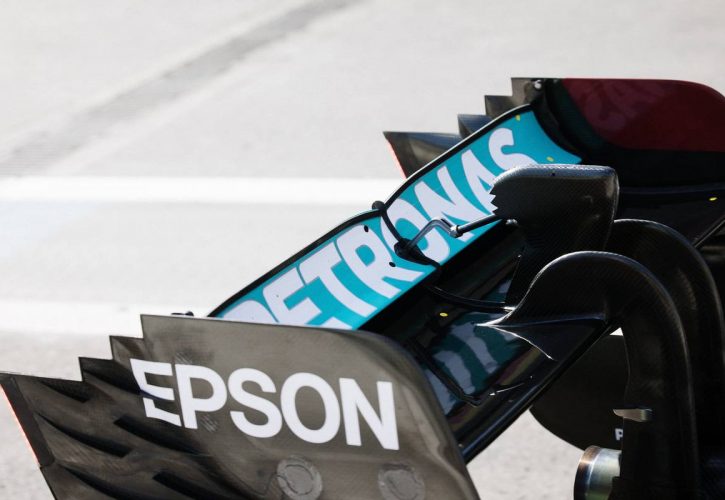
Mercedes says the rear wing of its W12 complied with the technical regulations in Brazil, but not with the technical directive that ultimately led to Lewis Hamilton's exclusion from qualifying.
Hamilton had set the pace in the Friday afternoon session in Sao Paulo but drama unfolded shortly after when the Briton's car failed a standard FIA control test conducted on his Mercedes rear wing.
In Mercedes' Sao Paulo Grand Prix debrief, the Brackley squad's technical director Mike Elliot shed some light on why the team's car was found in breach of the regulations.
"The simple answer is we failed a test that we needed to pass," said Elliott. "It's actually a bit more nuanced than that.
"Within the regulations there are two things, there are the Technical Regulations, which are the rules that we need to pass, and then there are Technical Directives, and they are issued by the FIA, and in general explanations as to how they are going to police those regulations.
"In this case, you've got the main plane of the rear wing and you've got a flap. And there is a rule that states there is a minimum gap between those wings and a maximum gap when the DRS opens, and that maximum gap is 85mm.
"That is written in those regulations and that is something we actually passed. The wing wasn't more than 85, or the flap wasn't more than 85mm away from the trailing edge. The reality was that we didn't pass the Technical Directive."
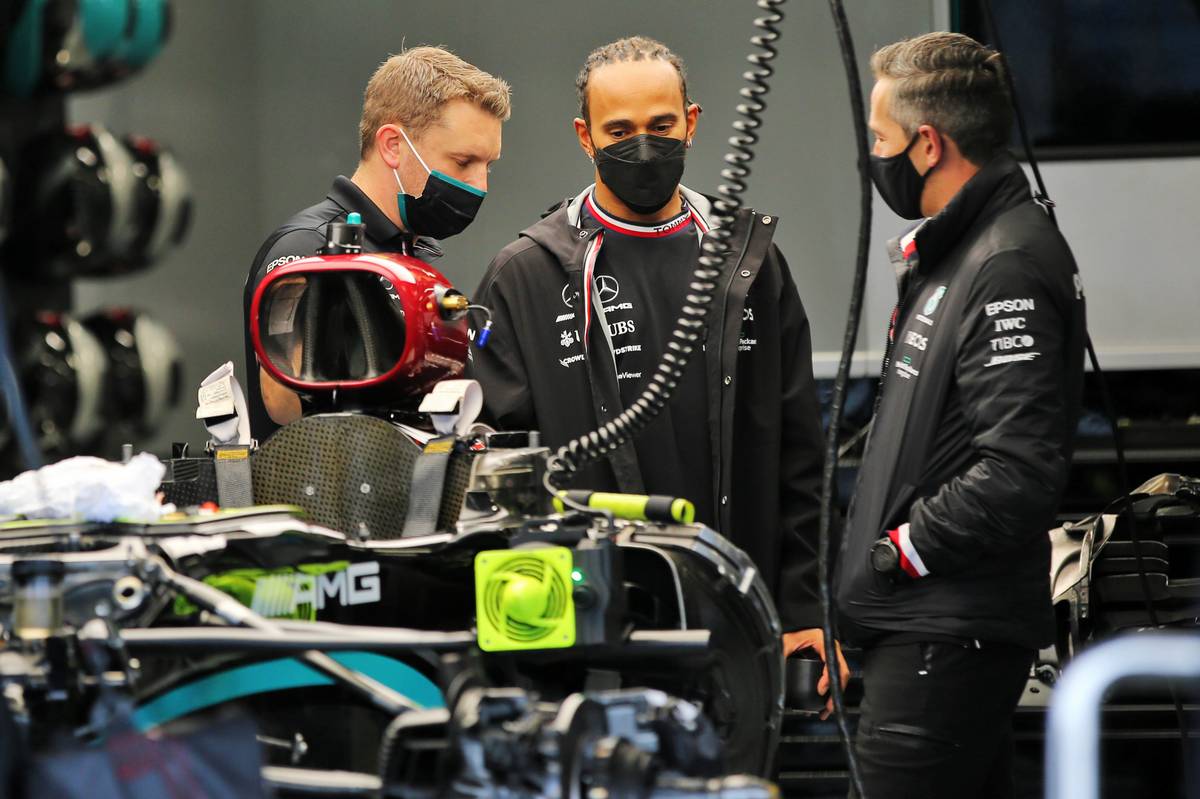
Elliot detailed how the FIA checks the maximum authorized clearance between the planes of a rear wing, insisting that Mercedes conducts the exact same tests ahead of its race weekend.
"Within the Technical Directives, they specify how that measurement is going to be taken," explained the British engineer.
"What they say is that we need to pass a test where they push a cylinder of 85mm diameter into that gap and they need to be able to push that through with a minimum force of 10 newtons. And the reality is, while we passed that over the majority of the span, there was a small place where we didn't pass that test.
"Now, just to put that into perspective, we obviously try to make sure that our cars are legal at all times - we don't want to take these sorts of penalties.
"What we do is we test those wings in test and development, and in those tests we do exactly the same tests, but we do it with a much higher force, 30 newtons, and we pass.
"We also test those wings when we get to the track, so on a Wednesday morning or a Thursday morning, we go through all those suites of tests and again that wing passed."
Mercedes' non-compliant wing was impounded by the FIA and remains in the possession of the governing body, which has prevented the German outfit from conducting its own investigation into the cause of the element's variance.
"For some reason, we are yet to understand," added Elliott.
"We had some sort of reliability issue, whether that was damage on track, whether that was something coming loose... We have yet to find that out because that wing is being bagged up and sort of FIA sealed."
Gallery: The beautiful wives and girlfriends of F1 drivers
Keep up to date with all the F1 news via Facebook and Twitter




